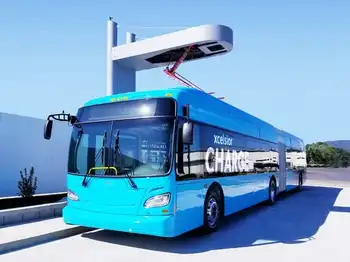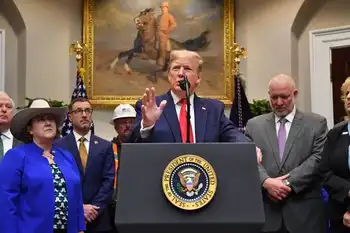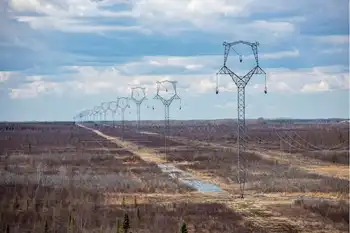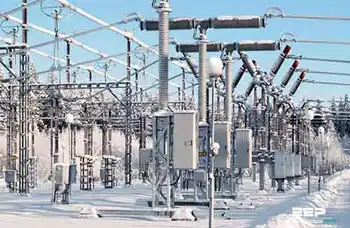U.S. noncommittal on Pakistan's nuclear desires
PAKISTAN - The Obama administration is being noncommittal about how it will respond to Pakistan's desire to be recognized a nuclear weapons power and forge an atomic energy deal as the two countries prepare for high-level strategic talks.
Ahead of two days of wide-ranging discussions intended to improve a decade of strained ties, senior administration officials would make no promises on what Pakistan considers to be at the top of the list of its priorities for winning international respect and domestic development.
U.S. officials have concerns about Pakistan's record in transferring nuclear technology to states such as Libya and North Korea and neither Secretary of State Hillary Rodham Clinton nor special representative for Afghanistan and Pakistan Richard Holbrooke would offer any promises.
They said they were ready to consider Pakistani proposals on the nuclear issue but refused to commit to any specific support.
"We're going to listen to with great interest to anything our Pakistani friends say," Holbrooke told reporters at the Pakistani Embassy.
He declined to comment further and refused to address the question of formally recognizing Pakistan as a nuclear weapons state, saying it would not be "productive" for him to discuss it.
Pakistani officials say they would like to have a civil nuclear cooperation pact with the United States similar to the one its nuclear rival India has. Such a deal likely would require at least tacit acknowledgment that Pakistan, which detonated its first nuclear bomb in 1998, is a legitimate nuclear armed power, something the United States has refused to do.
It also would require approval from Congress, which only reluctantly agreed to the civil nuclear deal with India despite there being far fewer proliferation concerns. But that has not dampened Pakistan's eagerness for an agreement, which it believes is essential to it overcoming crippling energy shortages.
"I think India and Pakistan, we have been in this together in South Asia, so what is good for India should be good for Pakistan," Pakistani Foreign Secretary Salmon Bashir said at the same gathering with Holbrooke.
He added that the fact that Pakistan is a nuclear weapons state "is a reality" that cannot be denied. "There is no doubt about that," he said.
Bashir added that energy in general — nuclear, clean coal and hydropower projects — was key to Pakistan's development needs.
Clinton, who will be leading the U.S. delegation in the talks at the State Department, declined to commit to a position on the nuclear matter.
"I'm sure that that's going to be raised and we're going to be considering it, but I can't prejudge or pre-empt what the outcome of our discussions will be," she said in an interview with Pakistan's Express TV Group.
Among other issues to be considered at the talks, which will involve Defense Secretary Robert Gates and other top military officials along with their Pakistani counterparts, will be defense and security, development, agriculture and water.
Holbrooke described the so-called Strategic Dialogue as the first time in recent history that the U.S. and Pakistan have sat down at senior levels for sustained discussions on these topics. Previous rounds, he said, were neither "strategic" nor a real "dialogue."
That led to misgivings and mistrust in Pakistan, which saw the U.S. as only interested in the country for security reasons in the aftermath of the 9/11 terror attacks due to its proximity to and involvement in Afghanistan, he said. "We have to correct that," Holbrooke said.
Pakistani Foreign Minister Mahmood Qureshi said this week's round of meetings were aimed at putting Islamabad on more equal footing with the United States.
"That's the only way it can move forward, is making a partnership of it," Qureshi told reporters after a meeting Tuesday on Capitol Hill.
On the security front, the U.S. is considering new ways to enhance Pakistan's ability to fight insurgents along its border with Afghanistan as they and other Western officials cheer recent arrests of leading Taliban officials by Pakistani authorities.
Pentagon press secretary Geoff Morrell said the U.S. is looking at ways to expedite payments to Pakistan to reimburse it for counter-terror operations. Pakistan says it is owed nearly $2 billion in such payments.
Related News

Why electric buses haven't taken over the world—yet
LONDON - In lots of ways, the electric bus feels like a technology whose time has come. Transportation is responsible for about a quarter of global emissions, and those emissions are growing faster than in any other sector. While buses are just a small slice of the worldwide vehicle fleet, they have an outsize effect on the environment. That’s partly because they’re so dirty—one Bogotá bus fleet made up just 5 percent of the city’s total vehicles, but a quarter of its CO2, 40 percent of nitrogen oxide, and more than half of all its particulate matter vehicle emissions. And…




